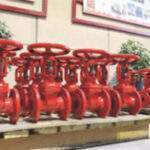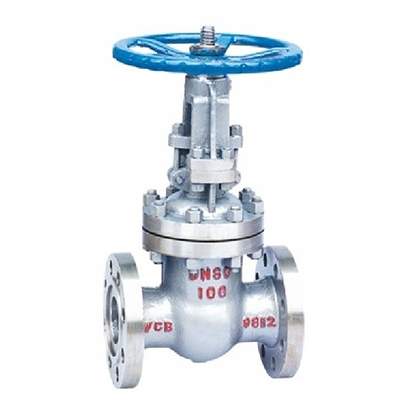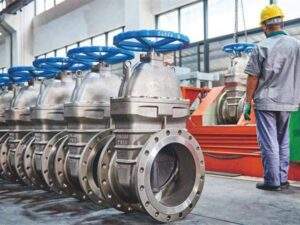Welcome to My Blog!
Before we dive into the content, if you’re interested in our products or have any questions, please feel free to visit our Contact Us page on the website. Our team is ready to assist you with inquiries, orders, or any support you may need.
Now, let’s get started on our journey together. I hope you find the content here insightful, engaging, and valuable.
Soft sealing gate valves are an essential component in various industries, offering reliable and efficient flow control solutions for liquid and gas pipelines. Whether you’re working in water treatment, oil and gas, HVAC systems, or chemical processing, understanding the ins and outs of soft sealing gate valves can make a significant difference in your system’s performance. In this comprehensive guide, we will walk you through everything you need to know about soft sealing gate valves, including their key features, advantages, applications, and how to choose the right valve for your project.
Introduction
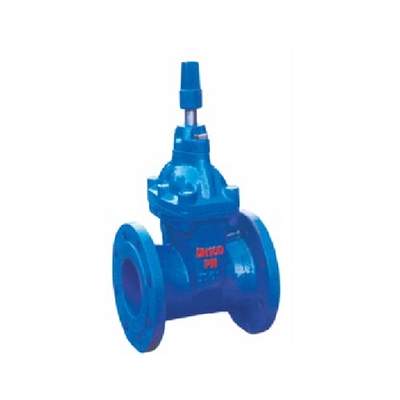
What is a Soft Sealing Gate Valve?
A soft sealing gate valve is a type of valve that uses a resilient material (usually rubber, elastomer, or PTFE) to create a seal when the valve is closed. Unlike traditional metal-seated gate valves, which use metal-to-metal contact for sealing, soft sealing valves are designed to provide a tight seal with less wear and tear, offering greater efficiency and performance in various applications. These valves are especially suited for systems where a durable seal is required for extended periods of use.
How Does a Soft Seal Gate Valve Work?
Soft sealing gate valves operate by using a wedge-shaped gate that is lifted or lowered to control the flow of liquids or gases. The resilient sealing material around the gate ensures a tight seal when the valve is fully closed, preventing leaks and minimizing energy loss. This design is particularly effective in handling a wide range of fluids, including water, oil, and chemicals, as it can handle different pressures and temperatures.
Why Are Soft Sealing Gate Valves Important?
Soft sealing gate valves are critical for industries that require high performance, long-lasting components to manage fluid flow. They reduce leakage, enhance operational efficiency, and improve safety in systems that deal with high-pressure or corrosive environments. Additionally, their ability to handle fluctuating pressures and temperatures makes them ideal for use in harsh conditions.
Key Features of Soft Sealing Gate Valves
Durable and Reliable Sealing Performance
One of the primary benefits of soft sealing gate valves is their excellent sealing performance. The soft sealing material, such as rubber or elastomer, provides a tight, reliable seal that reduces the likelihood of leakage. This ensures that the valve can be used in systems requiring a secure, leak-proof operation, making it an essential component for water treatment plants, chemical processing, and HVAC systems.
Materials Used in Soft Seal Gate Valves
Soft sealing gate valves are made from a variety of materials, including ductile iron, carbon steel, and stainless steel. The sealing material is usually rubber, elastomer, or PTFE, depending on the specific requirements of the application. These materials are chosen for their durability, resistance to corrosion, and ability to withstand high temperatures and pressures.
Design Flexibility and Customization
Soft sealing gate valves are highly customizable, allowing for various design modifications to meet specific operational requirements. Whether it’s adjusting the valve’s size, pressure rating, or material composition, manufacturers can tailor the valve to suit the demands of the system in which it will be installed.
Pressure and Temperature Resistance
Soft sealing gate valves are designed to operate in a wide range of pressure and temperature conditions. They are available in various pressure classes, making them suitable for applications ranging from standard water systems to high-pressure oil and gas pipelines. The materials used in the construction of these valves ensure that they can withstand both high temperatures and extreme pressure, making them highly versatile for industrial use.
Advantages of Using Soft Sealing Gate Valves
Better Sealing Efficiency
The soft sealing design of these valves ensures better sealing efficiency than traditional metal-seated valves. The elastic materials used for sealing create a tighter, more effective seal, minimizing leakage and preventing contaminants from entering the pipeline system.
Reduced Friction and Wear
Soft sealing gate valves experience less friction compared to metal-seated valves, which results in reduced wear on both the valve and the sealing material. This leads to a longer lifespan for the valve, reducing maintenance and replacement costs over time.
Longer Lifespan and Lower Maintenance
Due to their resilient sealing materials and low wear rates, soft seal gate valves typically have a longer lifespan compared to their metal-seated counterparts. This translates to lower maintenance costs, fewer replacements, and a more reliable valve for your pipeline system.
Cost-Effective Operation
Although soft sealing gate valves may have a higher initial cost, their long-lasting performance and minimal maintenance requirements make them a cost-effective choice in the long run. Their ability to operate efficiently for extended periods reduces downtime and operational disruptions, resulting in overall savings.
Applications of Soft Seal Gate Valves
Water Treatment Systems
Soft sealing gate valves are commonly used in water treatment facilities to control the flow of water in filtration systems, distribution lines, and treatment plants. Their ability to provide a tight seal makes them ideal for ensuring that water systems remain efficient and free from contamination.
Oil and Gas Pipelines
In the oil and gas industry, soft sealing gate valves are crucial for regulating the flow of petroleum and natural gas through pipelines. These valves are designed to withstand the high pressures and corrosive substances present in oil and gas systems, ensuring safe and reliable operation.
HVAC Systems
Soft sealing gate valves are used in HVAC systems to control the flow of air, water, and other fluids. They help regulate temperature and pressure, ensuring optimal performance and energy efficiency in heating and cooling systems.
Chemical and Industrial Plants
In chemical processing plants, soft seal gate valves are employed to manage the flow of various chemicals and industrial fluids. Their resistance to corrosion and ability to handle extreme temperatures make them ideal for these challenging environments.
Fire Protection Systems
Soft sealing gate valves play a critical role in fire protection systems, where they are used to control the flow of water or other fire suppression agents through pipelines. Their ability to function reliably under pressure ensures that these systems are always ready when needed.
How to Choose the Right Soft Sealing Gate Valve
Identifying Your Needs and Requirements
Before selecting a soft sealing gate valve, it’s important to assess your system’s requirements, including the type of fluid being handled, operating pressure, and temperature. This will help you determine the appropriate size, material, and pressure rating for your valve.
Factors to Consider: Size, Material, and Pressure Rating
Choosing the right valve depends on several factors. Ensure that the valve’s size fits your system’s specifications and that the material is compatible with the fluid being transported. Additionally, select a valve that can withstand the maximum pressure and temperature of your system to avoid failure.
Comparing Soft Seal Gate Valves to Other Types of Gate Valves
When selecting a gate valve, you may want to compare soft sealing gate valves with other types, such as metal-seated or wedge gate valves. Soft sealing valves typically offer better sealing efficiency and lower maintenance, but may not be as durable in extreme temperatures or high-abrasion environments.
Understanding Certifications and Standards (ISO, CE, etc.)
Ensure that the soft sealing gate valve you choose meets industry certifications such as ISO 9001 for quality management or CE certification for European standards. These certifications indicate that the valve meets high performance and safety requirements.
Installation and Maintenance of Soft Sealing Gate Valves
Step-by-Step Guide to Installing Soft Seal Gate Valves
Installing a soft seal gate valve typically involves aligning the valve with the pipeline, ensuring proper gasket placement, and tightening the flange bolts. Always refer to the manufacturer’s installation manual for specific instructions to ensure a secure installation.
Maintenance Tips for Prolonging Valve Life
Regular maintenance is essential to prolong the life of your soft sealing gate valve. This includes checking for leaks, lubricating the valve stem, and inspecting the seals for wear. Periodic cleaning of the valve will also prevent the buildup of debris that could affect its performance.
Troubleshooting Common Soft Sealing Gate Valve Issues
Common issues with soft sealing gate valves include leakage, valve stem failure, or operational difficulties. Troubleshooting these problems often involves replacing worn seals, cleaning debris from the valve seat, or replacing damaged components.
How to Repair and Replace Seals
When seals become worn or damaged, they can usually be replaced without the need to replace the entire valve. Replacing the seal involves disassembling the valve, removing the old seal, and installing a new one that matches the valve’s specifications.
Soft Sealing Gate Valves vs. Other Types of Gate Valves
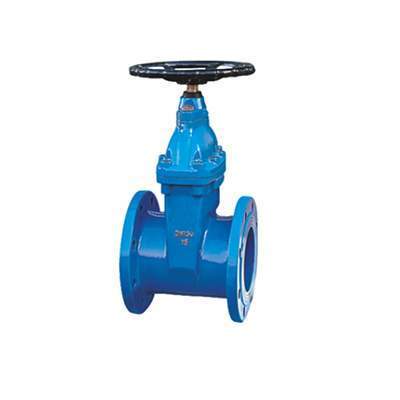
Soft Sealing Gate Valves vs. Metal-Seated Gate Valves
Soft sealing gate valves offer better sealing efficiency and less friction than metal-seated gate valves. However, metal-seated valves are more durable in extreme temperature and high-abrasion environments.
Soft Sealing Gate Valves vs. Wedge Gate Valves
Wedge gate valves use a wedge-shaped gate that is forced against a seat to provide a seal. While both types offer effective sealing, soft sealing gate valves generally offer better performance in preventing leaks.
Soft Sealing Gate Valves vs. Ball Valves
Ball valves provide quick and reliable shut-off but are often more expensive and complex compared to soft sealing gate valves, which offer a cost-effective solution for controlling flow in a wide range of applications.
Conclusion
Soft sealing gate valves offer excellent sealing performance, long lifespan, and low maintenance costs, making them the ideal choice for water treatment, oil and gas, HVAC, and chemical industries.Investing in high-quality soft sealing gate valves will help ensure the efficiency, safety, and longevity of your fluid control systems, providing long-term value and reliability.
FAQ
What is a soft sealing gate valve?
A soft sealing gate valve is a type of valve that uses resilient materials like rubber or elastomer to create a tight seal when closed, ensuring a leak-proof operation. It’s commonly used in water, oil, and gas pipelines to control fluid flow.
How does a soft sealing gate valve work?
The soft sealing gate valve operates by using a wedge-shaped gate that moves up and down to control the flow. When the valve is closed, the resilient sealing material compresses, forming a tight seal to prevent leaks.
What are the advantages of soft sealing gate valves over metal-seated valves?
Soft sealing gate valves offer better sealing efficiency, reduced friction, and lower wear compared to metal-seated valves. They are more cost-effective for long-term operation due to their reduced maintenance needs and improved leak prevention.
Where are soft sealing gate valves commonly used?
Soft sealing gate valves are widely used in water treatment plants, oil and gas pipelines, HVAC systems, and chemical processing facilities. They are essential in systems where tight seals and reliable flow control are required.
How do I maintain a soft sealing gate valve?
Regular maintenance involves inspecting the seals for wear, cleaning the valve regularly to prevent debris buildup, and lubricating the valve stem. Replacing worn seals and checking for leaks will help maintain optimal performance.
Ready to Optimize Your Pipeline Systems with Soft Sealing Gate Valves?
If you’re looking for high-quality, reliable soft sealing gate valves for your next project, get in touch with us today! Our expert team is here to help you choose the right solution for your needs. Contact us now for personalized advice and to explore our full range of valve products.


